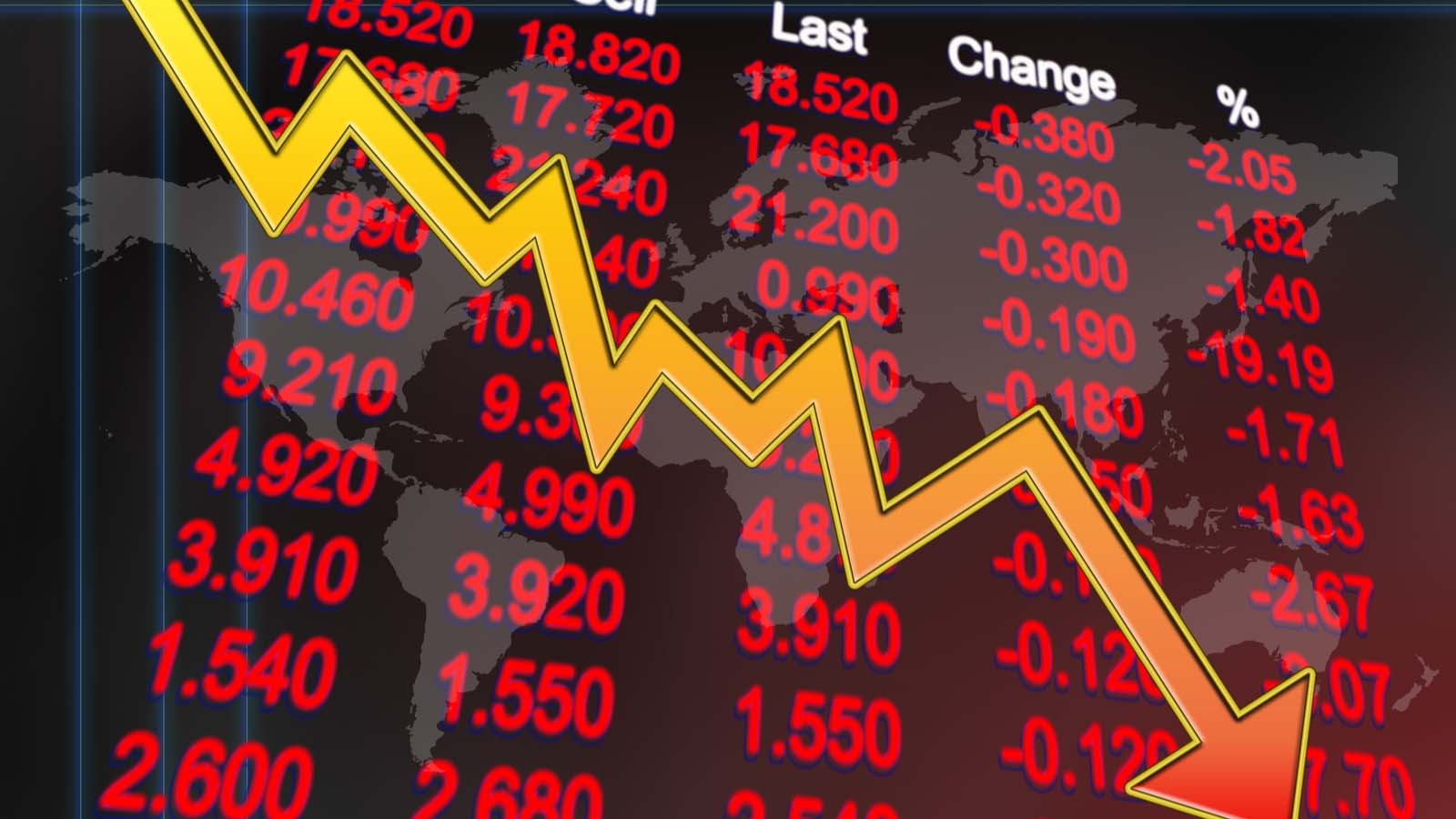Global Stock Market Crash: A Perfect Storm of Fear
A Seismic Shift in Global Markets

The global financial landscape is undergoing a dramatic upheaval, with stock markets experiencing a sharp and sustained decline. The cascade of events began with a staggering plunge in Japan's Nikkei index and a cryptocurrency market meltdown, setting the stage for a broader market panic.
European Banking Crisis Looms
At the epicenter of this turmoil are European banks, which have witnessed a dramatic downturn, mirroring the lows seen in March. This precipitous fall is a stark reminder of the fragile nature of the financial system and the interconnectedness of global markets.
Key Factors Driving the Crash
Several interconnected factors are fueling this market meltdown:
- US Recession Fears: Growing concerns about a potential US recession are casting a long shadow over investor sentiment. Weak economic indicators and tightening monetary policies have heightened anxiety.
- Geopolitical Tensions: Ongoing geopolitical conflicts and uncertainties are creating a climate of fear and uncertainty, prompting investors to seek safe-haven assets.
- Banking Sector Instability: The vulnerability of European banks, coupled with lingering concerns about the aftermath of the 2008 financial crisis, has eroded investor confidence.
- Cryptocurrency Contagion: The collapse of major cryptocurrency exchanges and the broader crypto market downturn have amplified risk aversion and triggered a sell-off across asset classes.
Domino Effect on Global Economy
The implications of this global stock market crash are far-reaching. A prolonged period of market volatility could stifle economic growth, disrupt trade, and increase unemployment. Additionally, it could lead to a credit crunch as banks become more cautious in lending, further exacerbating economic challenges.
Investor Caution and Safe-Haven Assets
As the market turmoil persists, investors are adopting a defensive stance, shifting their portfolios towards safer assets such as gold and government bonds. However, even these traditionally safe havens have experienced price fluctuations as the overall market environment remains uncertain.
Looking Ahead
The full extent of the damage caused by this global stock market crash remains to be seen. While short-term volatility is expected to continue, the long-term outlook depends on various factors, including the effectiveness of government and central bank interventions, the pace of economic recovery, and the resolution of geopolitical tensions.
It's important to note that this is a rapidly evolving situation, and market conditions can change quickly. Investors should exercise caution, conduct thorough research, and consider seeking professional financial advice.






















